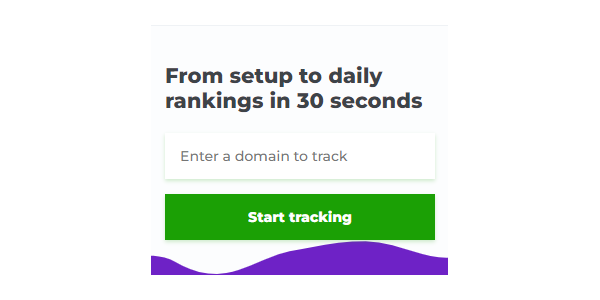Digital marketing
Digital marketing involves utilizing the internet and various digital platforms like websites, social media, email, messengers, etc., to effectively advertise your products and services to your desired audience.
To promote your business, you have various digital marketing strategies at your disposal such as sending emails, appearing on top of Google, and engaging through Instagram and Facebook.
- Search Engine Optimization (SEO)
- Content Marketing
- Social Media Marketing (SMM)
- Email Marketing
- Google Ads
- Online Reputation Management
In order to develop a robust digital marketing strategy, it is essential to have a thorough understanding of various techniques such as Search engine marketing and google analytics. By comprehending these skills in detail, one can effectively cherry-pick the most advantageous elements from each strategy.
Why is digital marketing important for business
When internet users compare prices online, they will choose the business that offers the most satisfactory customer experience. It is important that basic details such as operating hours, location, prices, special offers, and contact information are easily accessible. If customers do not perceive your digital store to be readily available and flexible, they will search for another store.
Online marketing is not limited to defensive measures aimed at diverting potential customers from competitors; it encompasses broader aspects.
By approaching it step by step, a proactive strategy can be implemented to demonstrate to customers that a brand has considered their needs and purchasing process. The initial focus of an efficient digital marketing strategy is to ensure a smooth journey, irrespective of whether the brand is primarily involved in e-commerce or not.
Does digital marketing replace traditional marketing
Even though you embrace digital marketing, it doesn’t imply that you have to abandon all traditional marketing endeavors. Instead, you can use digital marketing to enhance and expand traditional campaigns. By utilizing digital media including videos, photos, and audio, you can offer additional context, depth, or clarity to the advertising claims you have already made.
The benefits of digital marketing
Digital marketing provides numerous benefits compared to traditional advertising methods like print ads, direct mail, billboards, TV, and radio. It enables brands to maximize their resources and gives customers the freedom to engage with the brand on their own terms.
Online marketing enables customers to access the information they require even when your business is closed. It offers them the flexibility to send inquiries through email at their convenience, rather than obligating them to make phone calls within operating hours. Consequently, it prioritizes accommodating their schedule over yours.
When done effectively, digital marketing is the most effective method for establishing credibility and increasing recognition of a brand in the vast online market. Through social media platforms, brands can directly interact with their intended audience, gaining precise insights into consumer preferences and establishing genuine connections that foster trust and encourage customer loyalty.
Adding digital strategies to your marketing plan offers several benefits, highlighting the significance of digital marketing surpassing mere sales by serving as a valuable long-term investment for the prosperity and well-being of your business.
1. Reach
Digital marketing strategies are generally more affordable and have a wider potential audience compared to traditional strategies, making them a cost-effective option for small businesses concerned about advertising expenses.
Direct mail and billboards are reliant on customers residing in a particular locality, whereas radio and television require consumers to focus on specific media formats that are gradually losing popularity. In contrast, online marketing has the capability to reach individuals globally, without any geographical limitations.
The majority of potential customers are utilizing mobile devices or dedicating a substantial portion of their day to being online. In order to reach these customers, brands can employ various digital marketing channels such as content marketing, email marketing, and social media marketing.
2. Targeting
By utilizing digital marketing tools and analytics, brands can effectively identify and focus on customers who are highly likely to have an interest in their products or services. This allows them to allocate resources towards specific demographics that will provide the greatest value. Ultimately, a well-executed digital marketing strategy empowers companies to optimize their budget and personnel, resulting in increased return on investment.
3. Flexibility
Modern marketing analytics tools allow businesses to make real-time adjustments to their marketing campaigns, whereas traditional marketing methods involve sunk cost, meaning money already spent and no recourse until the next campaign. If a digital campaign fails, it is still possible to salvage it and recoup the money invested.
4. Measurability
Digital marketing channels are different from billboards, TV ads, and radio jingles because they come with built-in tools that allow brands to measure their performance.
According to P. K. Kannan, Dean’s Chair in Marketing Science at the Robert H. Smith School of Business at the University of Maryland and instructor for the Fundamentals of Digital Marketing course, it is essential for marketers to possess a basic comprehension of examining customer and market data in order to make well-informed decisions in today’s times.
By analyzing the number of impressions, clicks, and likes generated by social media posts, as well as determining the number of visitors to your website and their sources, it is evident how these metrics contribute to understanding the effectiveness of your digital marketing campaigns. Attribution modeling allows for tracking a customer’s initial purchase to their initial digital interaction with your brand. Prioritize the metrics that are most important to you and begin gaining insights into how your digital marketing efforts impact conversion rates.
5. Legitimacy
Businesses that have an online presence, which includes a website, are more likely to gain the trust of potential customers.
- A website
- Testimonials
- Social media accounts
Trust is crucial for consumers when considering a new product or service, and a brand’s established and trusted online presence demonstrates its healthiness.
One of the most powerful methods to enhance your brand reputation involves collaborating with influencers on social networks.
6. Democratization
When executed correctly, digital marketing has the ability to create a level playing field for small businesses in competition with larger corporations.
Although Amazon, Walmart, and other large retailers have significant financial resources, their wealth does not guarantee search engine prominence. The sole method to secure a top position on the Google search results is by establishing relevance through techniques such as pay-per-click (PPC) advertising and search engine optimization (SEO).
7. Achieving more targeted customers
The primary aim of any business is to achieve marketing goals and objectives and to connect with the target audience. Digital marketing simplifies the process of reaching potential customers through online platforms.
Digital marketing allows you to target and advertise to individuals who are most likely to become customers, which is highly advantageous in the early stages of your business. With the correct strategy and timing, this opportunity can be a dream come true.
8. High conversion rate
The conversion rate refers to the proportion of website visitors who perform the desired action. By utilizing digital marketing strategies for your small enterprise, you can enhance your conversion rate. Through the process of Conversion Rate Optimization, your small business will engage a larger number of visitors who will accomplish your desired objective out of the total visitor count.
One way to achieve these objectives is to implement a pay-per-click strategy. This involves charging a fee for every click on your ad, which can aid in expanding your small business and increasing your customer base through improved conversion rates.
9. Higher ROI at lower cost
If you are a small business or a start-up, your primary objective is to promote your product or service using limited funds while generating higher income. Unlike larger companies, which can afford to spend more on marketing, startups and small businesses strive to minimize expenses and maximize profits.
At that specific time, digital marketing aids organizations in decreasing expenses connected to the promotion of products or services. Furthermore, it has been observed that the cost of traditional marketing is higher compared to that of digital marketing.
If you choose to hire a digital marketing agency, the initial cost can be high. Therefore, a cost-effective option is to start by conducting digital marketing in-house. You can acquire digital marketing skills easily by learning from experienced mentors and trainers who apply these skills in real-life scenarios, such as at IIDE.
10. Enables outdoing competitors
The primary issue faced by small businesses is a lack of funds, which hinders their ability to rival larger brands and corporations as they lack sufficient financial resources and assets.
If you utilize digital marketing strategies effectively, it will aid you in this endeavor. The key factor for this to occur is creativity. If you possess innovative content for your business or are sufficiently creative, you can overcome any challenges in the digital industry.
You can easily rival any type of business, whether it is large or small, and also attract the attention of their audience.
The digital marketing industry is primarily driven by creativity.
11. Helps you enhance your CRM
The success of a business relies on customer satisfaction, which can only be achieved by establishing strong connections or relationships with customers. In the past, this was difficult to accomplish due to limited sources and channels.
With the progress of digital marketing, companies of all types and sizes can now effortlessly establish their CRM, which is actually crucial even for small businesses. This enables the creation of goodwill and customer loyalty over time.
With the assistance of digital marketing, even small businesses can now operate their CRM as effectively as large companies do, demonstrating that size is no longer a limiting factor.
12. Allows for efficient tracking of future campaigns
Assuming you are the owner of a departmental store, are you able to determine the number of visitors in a day, the amount of customers who came to your store, the quantity of purchases made, and the level of interest shown in your product?
It is possible that you may receive some information, but determining which traditional marketing strategy has generated a larger audience, such as newspapers, billboards or radio, is an unknowable aspect.
By utilizing digital marketing, you are able to determine the strategy and campaign that have yielded the greatest return on investment. This can be achieved through the utilization of the Analytics tool. Additionally, if you possess a website, you can obtain comprehensive information about your customers, such as their demographics, geographical locations, and the duration of time they have spent on your website.
Tracking is particularly advantageous for small businesses with limited budgets because it allows them to spend their money solely on campaigns that yield positive outcomes, rather than blindly investing in channels that may not produce any desired results.
This Online Google Analytics Course teaches you how to effectively track campaigns using one of the most powerful and free tools available – Google Analytics.






